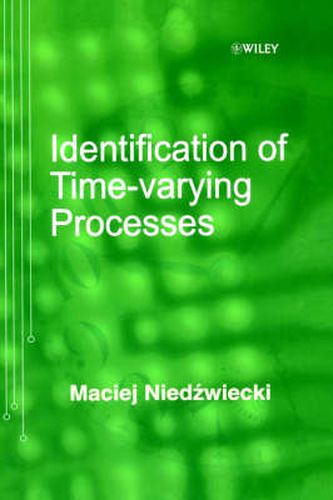Readings Newsletter
Become a Readings Member to make your shopping experience even easier.
Sign in or sign up for free!
You’re not far away from qualifying for FREE standard shipping within Australia
You’ve qualified for FREE standard shipping within Australia
The cart is loading…






Identification of Time-Varying Processes offers a comprehensive treatment of the key issue in adaptive systems: tracking of time-varying system parameters. Time-varying identification techniques facilitate many challenging applications in different areas including telecommunications (channel equalization, predictive coding of signals, adaptive noise reduction and echo cancellation) and automatic control (adaptive control and failure detection). The processes also assist signal processing in areas such as adaptive noise reduction, prediction of time series, restoration of archive audio recordings and spectrum estimation. Includes: All three major approaches to time-varying identification: local estimation, the basis functions approach and the method based on Kalman filtering/smoothing. Analysis and comparison of tracking capabilities of different time-varying identification schemes. Discussion of all aspects of time-varying identification such as assessment of the estimation memory, estimation bandwidth and numerical stability of different identification algorithms and optimization of adaptive filters. Presentation of selected practical applications of time-varying process identification. Essential reading for adaptive signal processing engineers, researchers, lecturers and senior electrical engineering and computer science students in telecommunications and signal processing.
$9.00 standard shipping within Australia
FREE standard shipping within Australia for orders over $100.00
Express & International shipping calculated at checkout
Identification of Time-Varying Processes offers a comprehensive treatment of the key issue in adaptive systems: tracking of time-varying system parameters. Time-varying identification techniques facilitate many challenging applications in different areas including telecommunications (channel equalization, predictive coding of signals, adaptive noise reduction and echo cancellation) and automatic control (adaptive control and failure detection). The processes also assist signal processing in areas such as adaptive noise reduction, prediction of time series, restoration of archive audio recordings and spectrum estimation. Includes: All three major approaches to time-varying identification: local estimation, the basis functions approach and the method based on Kalman filtering/smoothing. Analysis and comparison of tracking capabilities of different time-varying identification schemes. Discussion of all aspects of time-varying identification such as assessment of the estimation memory, estimation bandwidth and numerical stability of different identification algorithms and optimization of adaptive filters. Presentation of selected practical applications of time-varying process identification. Essential reading for adaptive signal processing engineers, researchers, lecturers and senior electrical engineering and computer science students in telecommunications and signal processing.